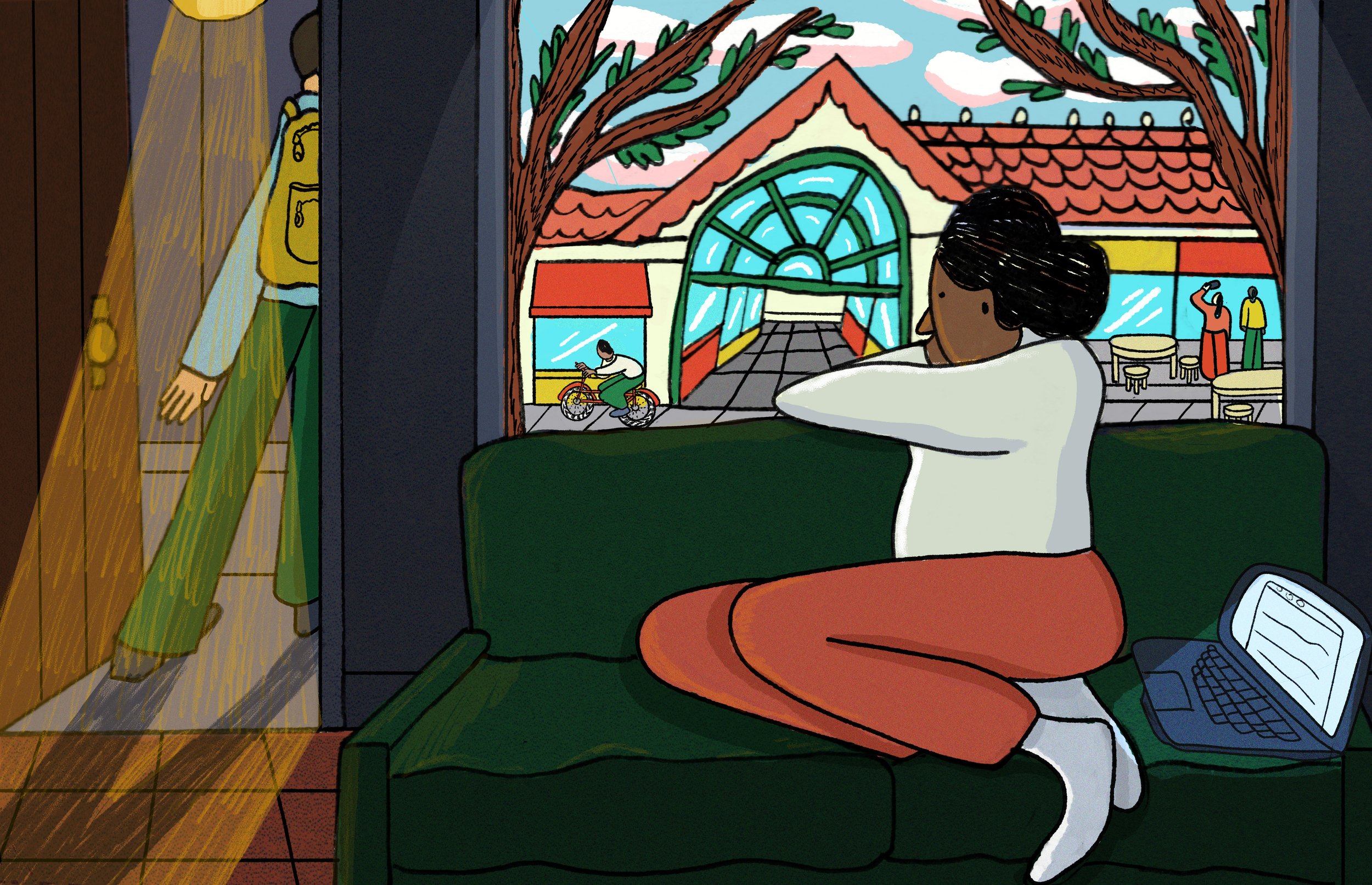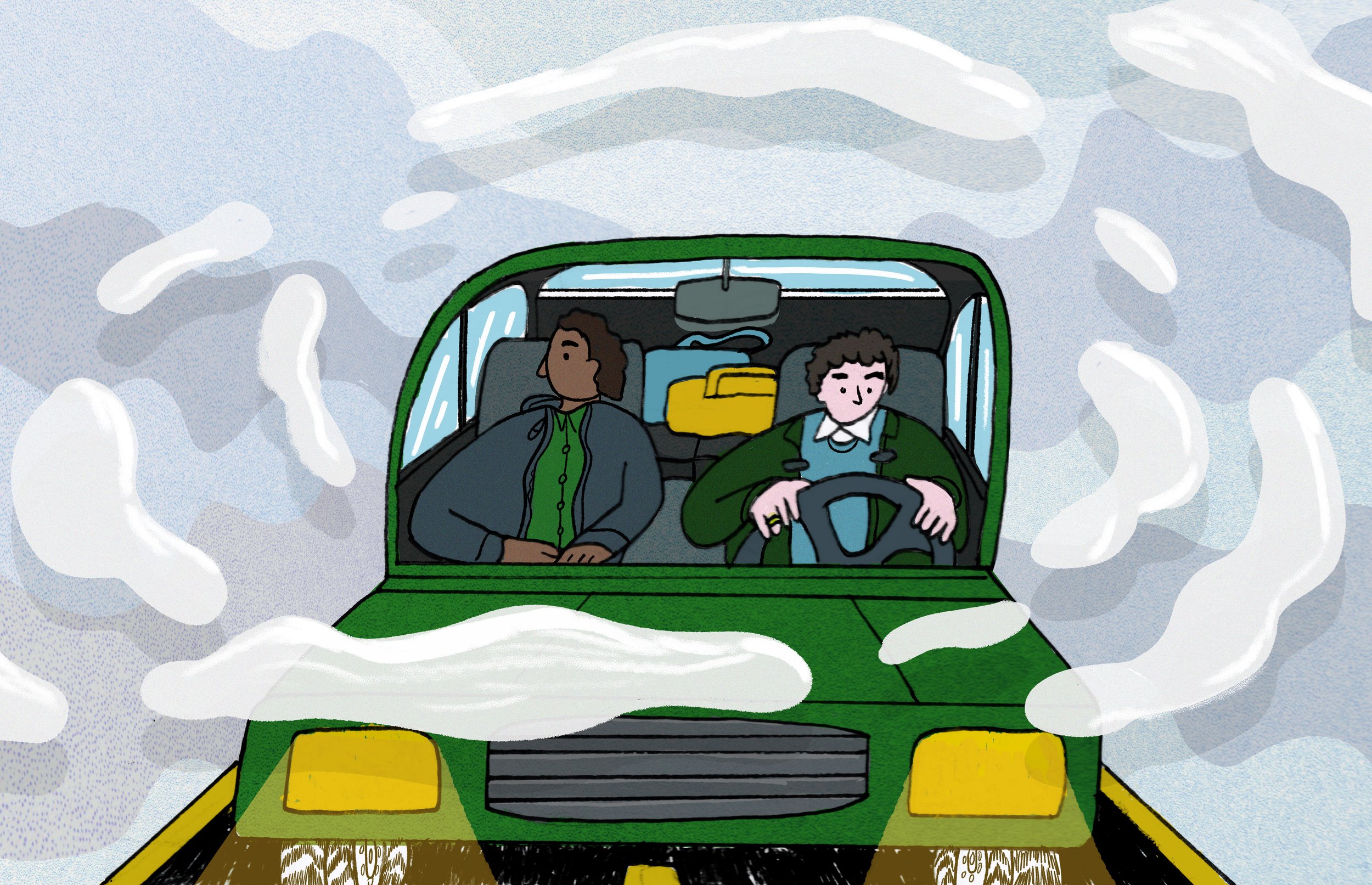After Dark on Sabal Palm Road

After dark on Sabal Palm Road in Florida’s Picayune Strand State Forest is when the Chuck-will’s-widows make their calls. During daylight, the birds are almost impossible to see, feathers patterned in mottled browns like bits of leaf debris. But we’ve come at night with our car windows rolled down, our faces turned to the spongy, humid air, listening for their namesake song. Chuck-will’s-widow. They’re as hidden in the dark as they are camouflaged during the day, but there’s something about being on this deserted road at night that makes me feel uncomfortably exposed.
I’m traveling with my son Oscar, who’s on spring break from his college in Maine. We’ve driven all day through the Everglades, making bird stops along the way: tropical kingbirds in Homestead, swallow-tailed kites at L31W Canal. Outside Homestead, a man named Larry lets us sit in his backyard. We wait for a cauldron of bronzed cowbirds to return to the feeders after a low-flying Cooper’s hawk scares them off. After an hour of sitting, Larry tells us about his wife, a Frenchwoman: the right kind of immigrant.
Later, as the sun goes down and wedges into the center of bumper-to-bumper suburban traffic, I drive straight over a gopher tortoise. Its shell catches against the transmission with a loud, hollow thwack. As the miles loop away, I’m shaken.
We leave behind the motels and smokehouse lights, and even the vast flatness of one-story neighborhoods disappears into the outlines of winged sumac and saw-toothed palmetto. The darkness thickens as the slash pines grow into forest on either side of our now isolated road. We inch along, the moon high above us, our lone headlights making shadows in the moist underbrush.
I’ve never been comfortable in the dark; my imagination is too practiced. In addition to panther and alligator crossing signs, we spent the day driving past billboards advertising gun shops and target shooting. This is the month Governor Ron DeSantis turns his “Don’t Say Gay” bill into law. Real or imagined, the toxic brew of fear and mistrust is palpable. It's difficult to feel safe in this state. In this country.
Florida wasn’t my choice, neither was this visit to a park at night, but I’m a parent of a young adult. My job’s no longer about keeping my child safe. Instead, I bend to his ambition, his curiosity. My son studies ecology and wildlife conservation. He’s a birder that connects with birders all over the world, including people like Larry and their hurtful politics.
Oscar’s passion brought us to the Picayune Strand State Forest. To Sabal Palm Road, where it’s late and dark and we’re alone, and the air is musky with wild jasmine. I steer the rental car, we lean out the windows. Insects pulse. When the breeze picks up, stiff palm fronds click quickly against each other, making the sound of a sudden spring rainstorm. It quiets, a frog croaks. And then the first Chuck-will’s-widow makes its call. Chuck-will’s-widow. We turn off the engine and listen together.
About the Author
Milena Nigam’s work has appeared in Prime Number Magazine, YARN, Slice, Full Grown People, Hippocampus Magazine, and elsewhere; her short story, “Switchbacks,” was nominated for the 2019 Pushcart Prize, and she was a fellow at the Virginia Center for Creative Arts. Milena lives in Pittsburgh and is a reader at The Barcelona Review. She’s currently seeking representation for a novel set in Vienna.
Illustration by Jane Demarest.
Edited by Tusshara Nalakumar Srilatha.











